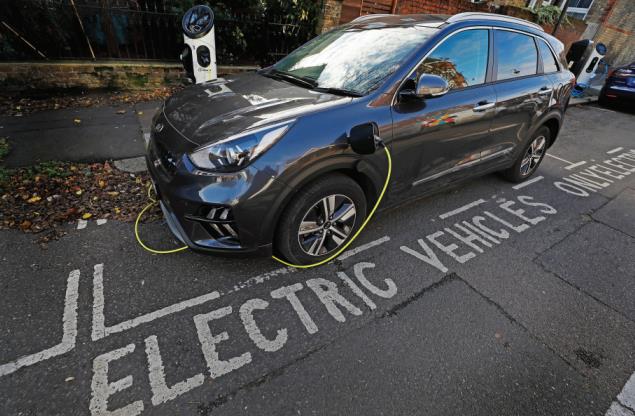UK govt unveils plan to tackle pollution, start green revolution
By JULIAN SHEA in London | China Daily Global | Updated: 2020-11-19 09:31

A ban on the sale of new fossil fuel vehicles in the United Kingdom being moved forward 10 years to 2030 will not be enough to meet the government's own climate targets, a transport think tank has warned, because of the impact of vehicles that will come into use before then.
Later this week, Prime Minister Boris Johnson will unveil a new plan to tackle the climate crisis, which includes this move on vehicle sales, green improvements to domestic heating, and an overhaul of Britain's nuclear industry.
The ban would make the UK the second country to phase out fossil fuel vehicles altogether, behind Norway, which is on course to do so by 2025, but a report by New Automotive, a transport think tank supported by the Quadrature Climate Foundation, says it will have little impact, as emissions will still be around 40 percent above the legally-binding target set by the government's own advisers, the Committee on Climate Change, or CCC.
"A ban in the 2030s will do nothing to tackle the long tail of polluting cars that will be left on our roads for many years to come," the report said.
Other proposals on the agenda include quadrupling the amount of energy produced by windfarms by the year 2030, and further investment in nuclear power, both of which will create jobs in regions that have suffered post-industrial unemployment problems.
Chris Stark, chief executive of the CCC, said the new plan was "just the tonic as we look to 2021".
"The plans announced today will transform Britain for the better, bringing new opportunities and new investment," Stark said. "This is our path out of the economic challenges created by the COVID crisis and it is a set of commitments that will raise the UK's credibility."
So far, the government has put aside 4 billion pounds ($5.3 billion) for the fossil fuels project, with the overall budget for the measures being 12 billion pounds, but critics say this is not enough.
The opposition Labour Party's shadow business secretary, Ed Miliband, who served as energy and climate change secretary in the last Labour government, said the funding "pales in comparison to the tens of billions committed by France and Germany".
Caroline Lucas, the only Green Party member of Parliament, told the BBC the measures were welcome but did not go anywhere near far enough.
"When you put it in the context of the scale of the climate and nature emergencies that we face, and indeed the scale of the job emergencies that we face, then it's nowhere near ambitious enough, it's not urgent enough, it's not bold enough," she said. She also criticised the budget for it, saying "the resources aren't there in order to make this a really strategic package".
Non-political stakeholders were more positive. Tanya Steele of conservation charity WWF-UK said the government had "fired the starting gun on the action we need to see "and she awaited to see if Chancellor Rishi Sunak would "live up to the ambition expressed today" with his fiscal policies, while Alistair Phillips-Davies, chief executive of energy supplier SSE, praised the government's "level of ambition".
























